Advertisement
How to Declutter Your Home Fast and Create a Peaceful Space
Advertisement
Clutter is the physical manifestation of unmade decisions fueled by procrastination. — Christina Scalise. Feeling like your belongings have taken over your home? Like no matter how much you clean, the clutter just won't disappear? If that's the case, you're in good company. Millions across the nation have come to the realization that it's time to declutter their homes. Each year, Americans spend $1.2 trillion on goods and services they don't truly need, leading to an accumulation of around 300,000 items in the average household. Whether you're aiming for a minimalist lifestyle or simply want a tidier space, decluttering can work wonders for your mind. It's time to reclaim your space and say goodbye to clutter!
Start Small
There's no need to overwhelm yourself right off the bat. Begin by dedicating 5 to 10 minutes a day to decluttering. Set small, achievable goals to build momentum. You might start by giving away one item each day. As you find your groove, make your goals more impactful in terms of the results you desire. For example, if you have heaps of clothes, pack up a box daily to donate until only your most-worn items remain.
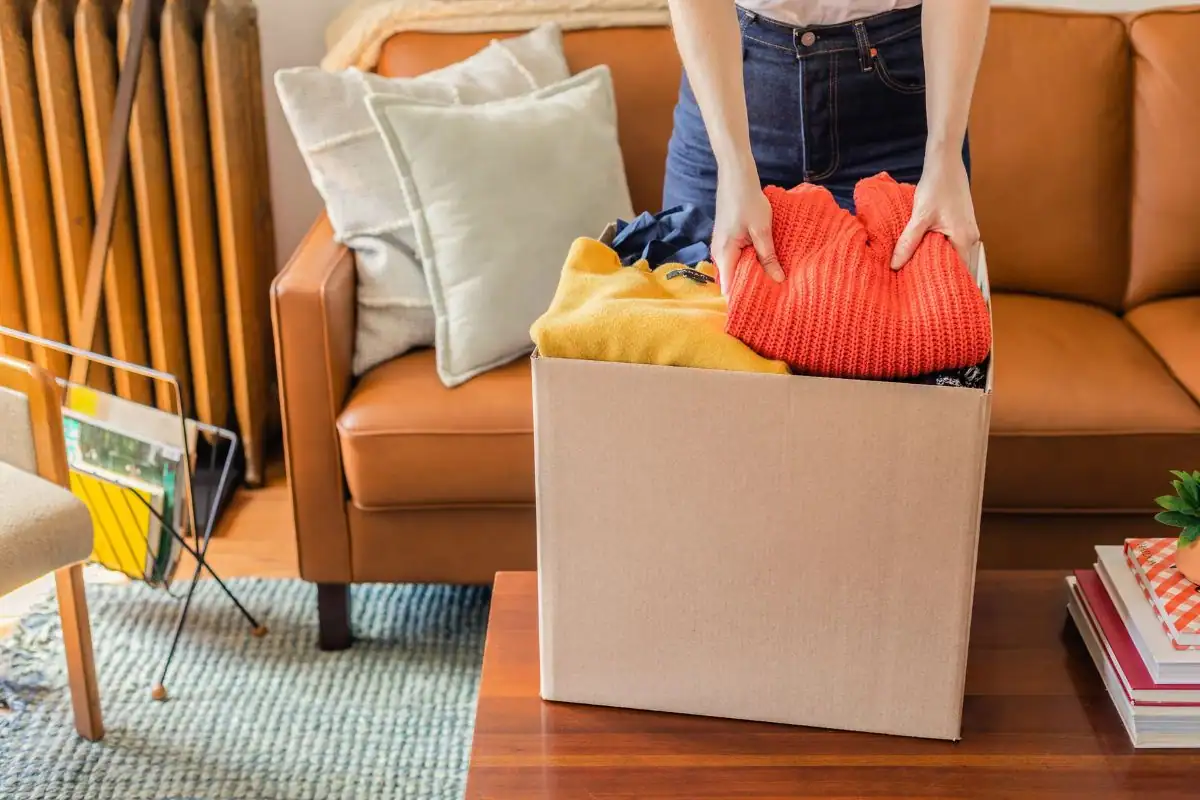
Advertisement
Create a Checklist
Having a visual guide can make daunting tasks more manageable. Craft a "read-do" checklist, similar to following a recipe. Tackle one task after another to achieve a specific outcome. Focus on one room or group of items at a time. Today, you might sort through pots and pans; tomorrow, you could tackle your book collection.
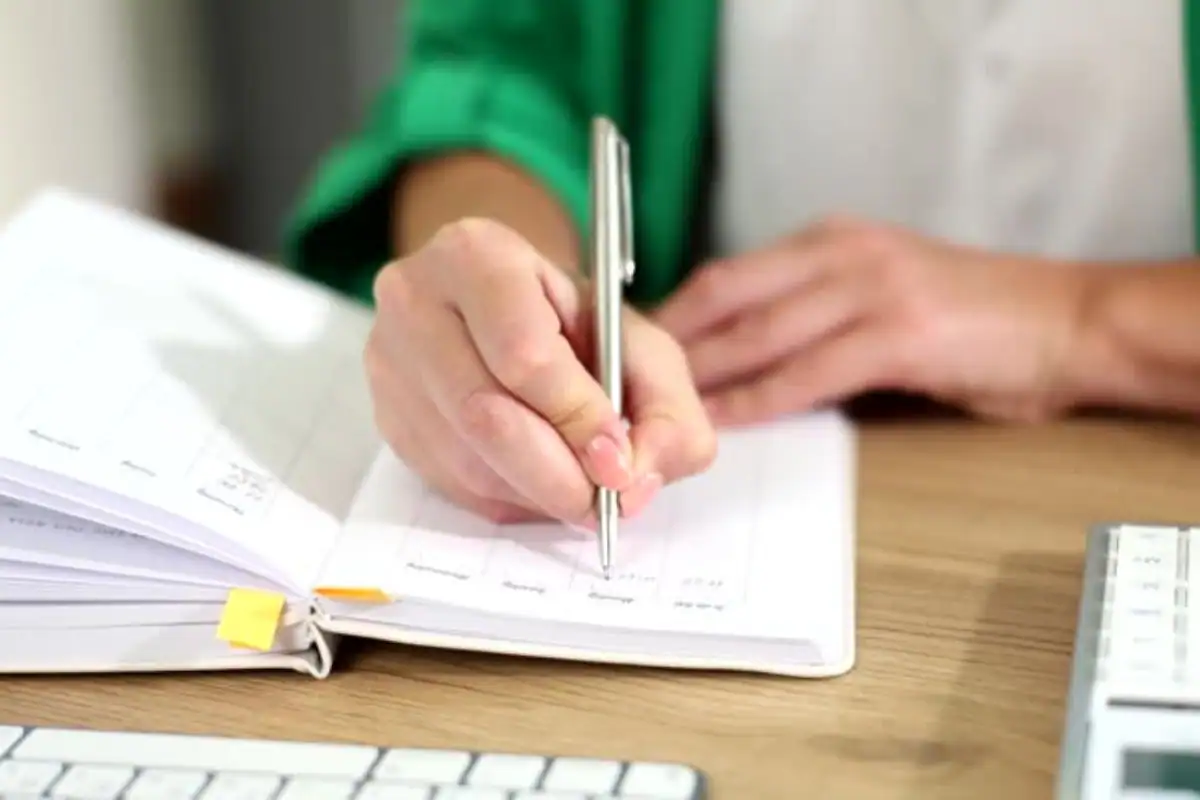
Advertisement
Start with One Space
Choose a single area to kick off your decluttering journey. The goal is to make significant progress in that space to build momentum for the rest of your home. Is your pantry driving you nuts? Does your junk drawer haunt your thoughts? Has the laundry room become chaotic? Whatever area is calling out for attention, focus solely on that space. Picking a spot that offers instant gratification can boost your motivation.

Advertisement
Set a Timeline
Think of your timeline as a strategic plan—decide where you'll start and when. How you structure this plan depends on what works best for you:
- Create a map of your home and label clutter hotspots to prioritize.
- Grade each space based on the severity of clutter.
- Focus on one room or area at a time.
- Assign completion dates for each area.
- Allocate extra time for spaces that will take longer, like the garage or basement.
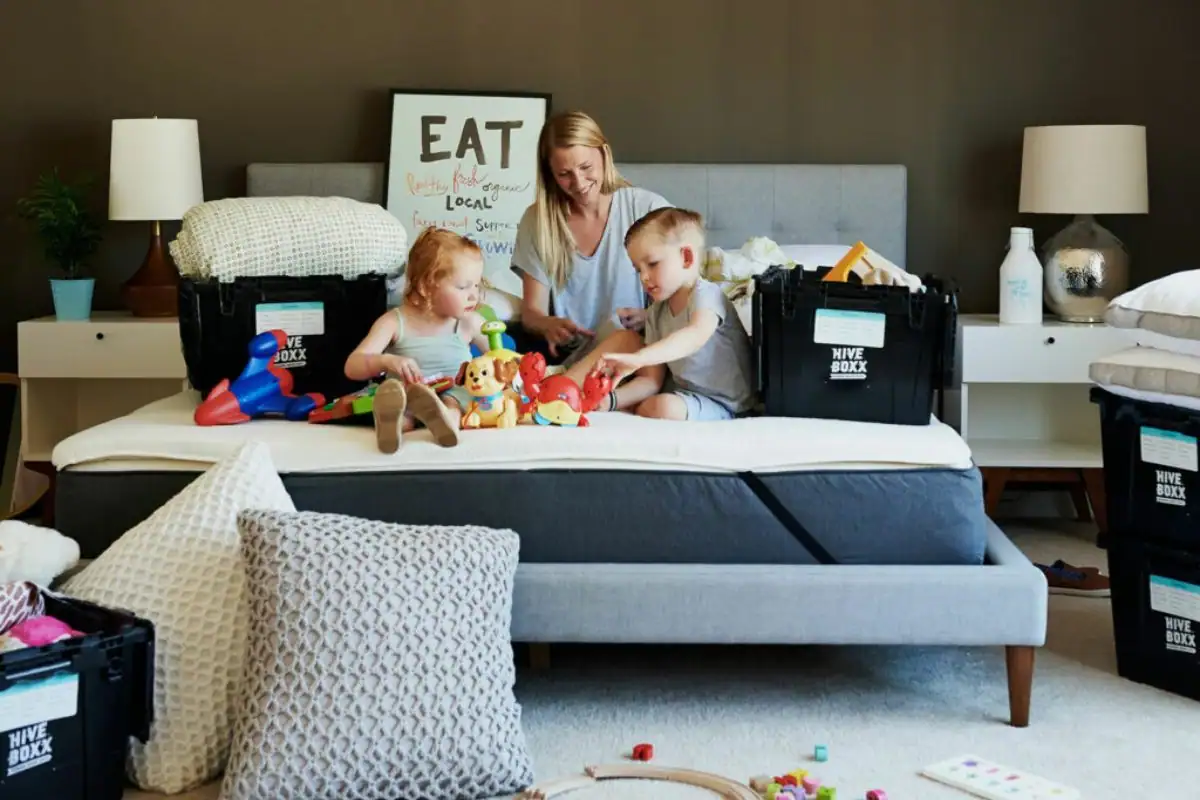
Advertisement
Develop a Sorting System
As you sort through items, you'll need designated places to put them. Developing a strategic sorting system is essential. You can use your own method or try the popular three-box approach. Grab three large boxes or storage bins and label them:
- Keep: Items you use regularly. Once this box is full, find permanent homes for these items in drawers, closets, or cabinets to get organized.
- Get Rid Of: Items to donate, recycle, or throw away. As you collect these, move them out of your home promptly. Place donations in your car so they're ready to drop off.
- Store: Items you want to keep but don't use daily, like seasonal decorations or sentimental keepsakes.
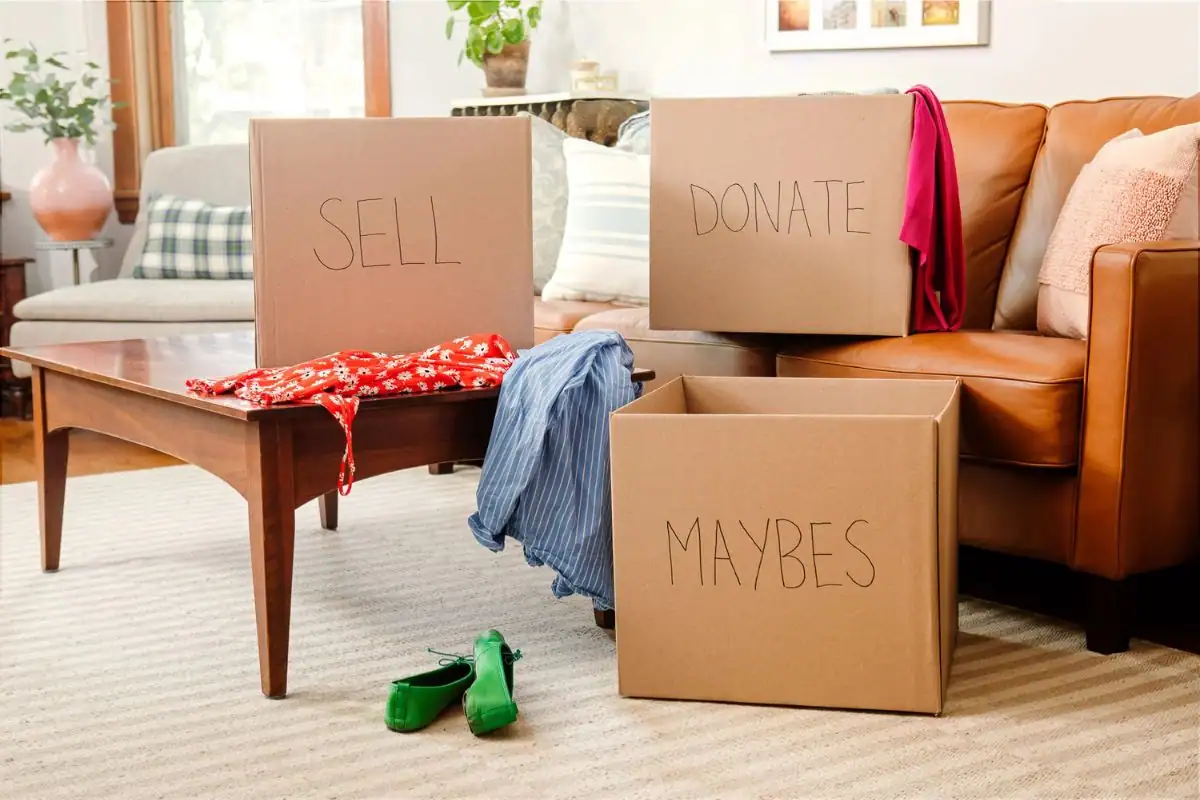
Advertisement
Target Your Clothing
If your closet is overflowing, it's time to declutter. As you sift through each item, ask yourself simple questions: Do you love it? Do you wear it? Does it fit? Have a donation box ready to make purging easier. If the task feels overwhelming, commit to a weekly clutter sweep. Spending 15 minutes twice a week in your closet can help you reclaim that valuable space in no time.

Advertisement
Create New Habits
Consciously work on developing new, productive habits. When every item has a home, it's easier to keep things orderly. So if you take something out, put it back where it belongs. If an area starts getting crowded, minimize that space before it spirals out of control. Building new habits takes time, but with repetition, they'll eventually become second nature.

Advertisement
Maximize Your Space
Got room under the bed? Use it for storage. Have untapped vertical space? Add shelves to store items you don't use often, like seldom-used kitchen appliances. Also, focus on maximizing your counter space. Clearing cluttered countertops in the kitchen or bathroom can make the area look much more organized. Find homes for items that once cluttered the counters, and if needed, use the sorting system mentioned earlier.
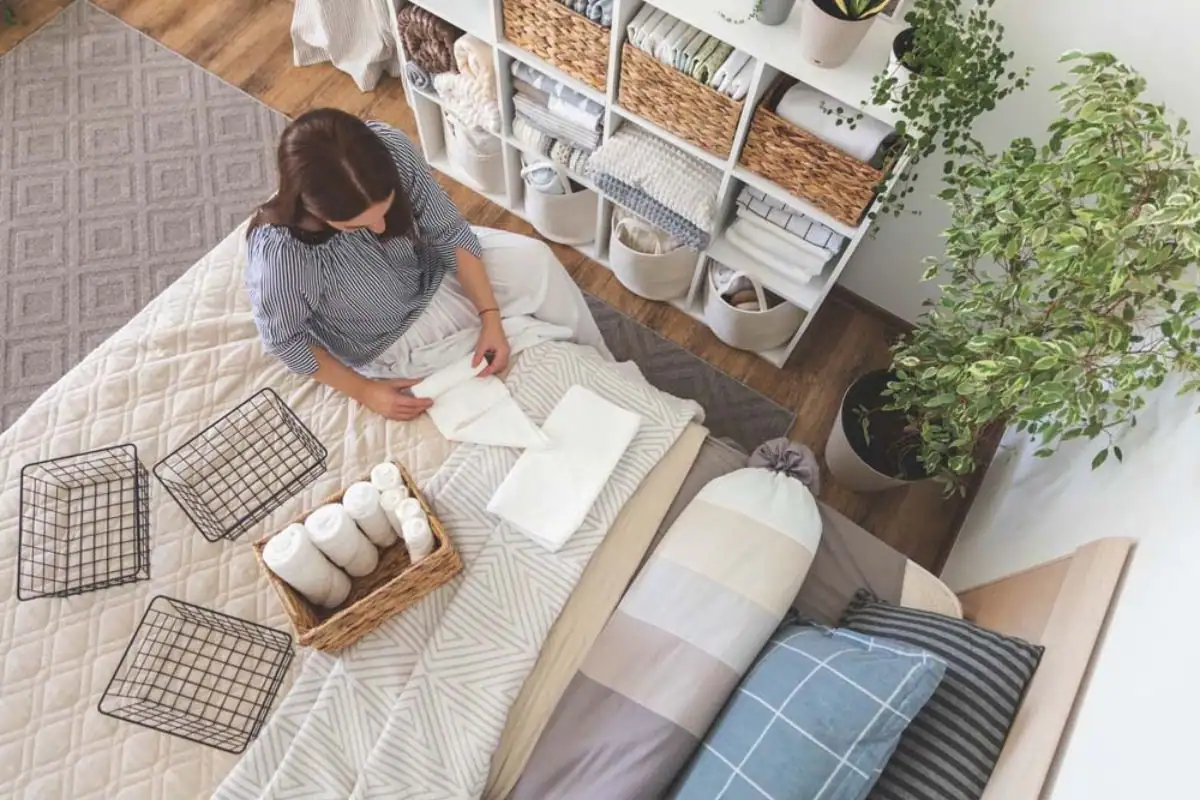
Advertisement
Say Goodbye to Paper Clutter
Do you have flyers, old magazines, and catalogs piling up? It's time to recycle them. Shred old bills, and toss excess cardboard straight into the recycling bin. Paper and cardboard tend to accumulate quickly, so tackling this small task can make a big difference. It's a great place to start if you're looking for a quick win.
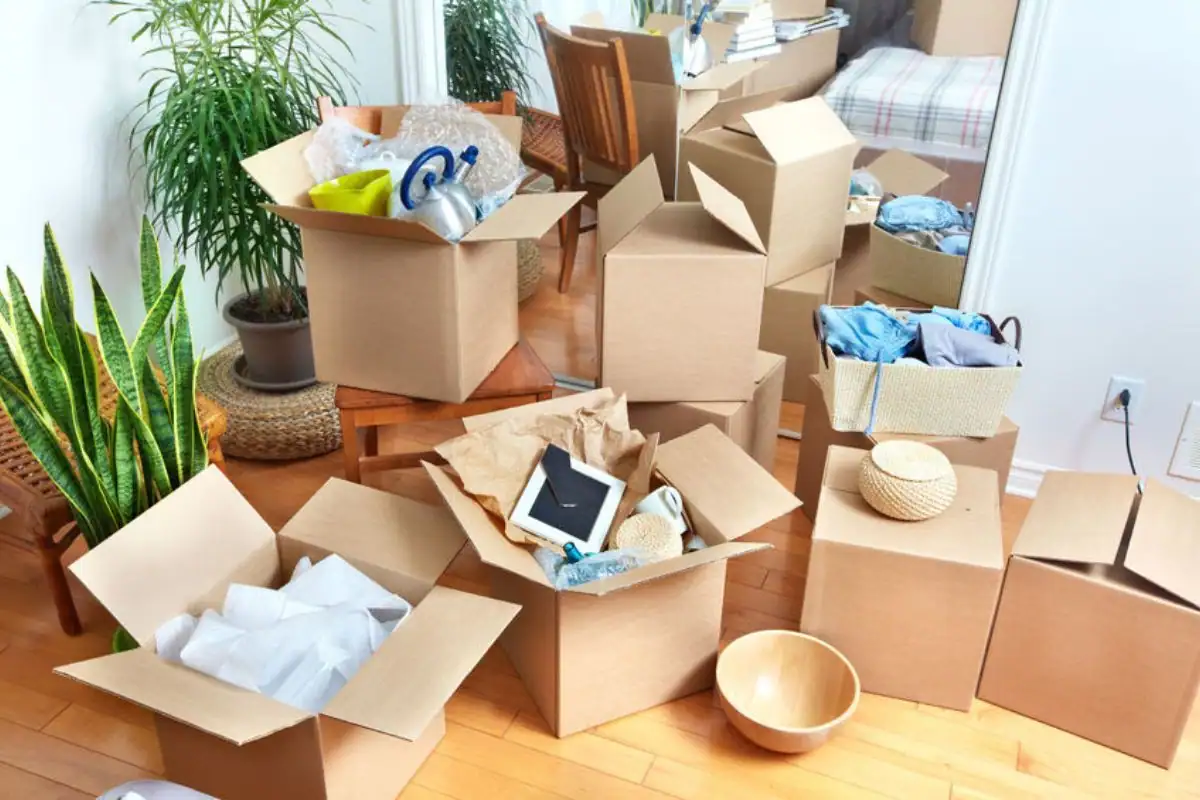
Advertisement
Be Realistic
Organizing and decluttering take time and effort. Before diving in, be realistic about what a specific project will entail. Don't pull everything out only to shove it back when you need to attend to something else—that'll leave you worse off than before. Life happens, so tackle projects in manageable chunks. By setting realistic expectations, you'll be more likely to stick with your decluttering journey and achieve lasting results.

.png)




